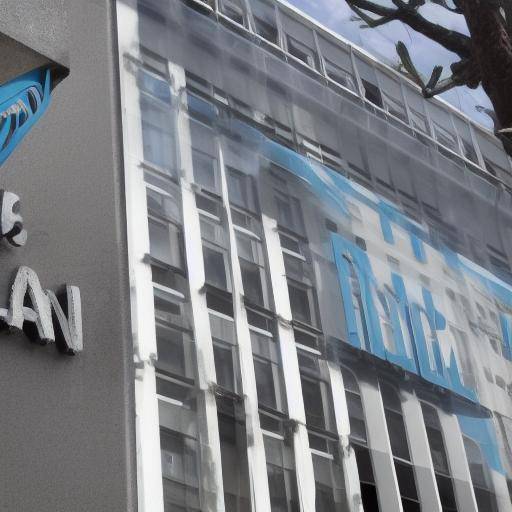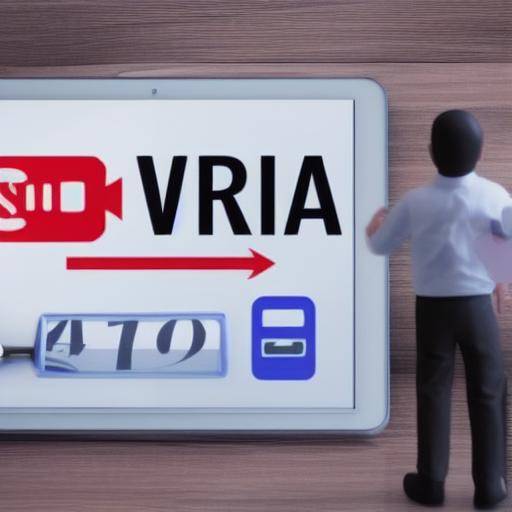
Introduction
Have you ever wondered where your money is going? Do you feel like you can't control your expenses and your personal finances aren't in the best state? If so, you're not alone. Appropriate management of finance is critical to achieving economic stability and enjoying a carefree life.
In this article, we will explore the cost tracking technique, which is a powerful tool to improve your financial habits and achieve financial stability. You will find out how this practice can give you clarity about your spending patterns, help you identify areas where you can optimize your finances and ultimately enhance your economic well-being.
History and Background
Cost tracking has its roots in ancient financial wisdom. Throughout history, cultures have fostered prudence and responsibility in managing money. From the first barter systems to the modern digital era, the management of financial resources has been a constant concern for humanity.
In the nineteenth century, with the advent of modern accounting, more structured techniques emerged to track income and expenditure. The first forms of budgeting and detailed monitoring of expenditures appeared, marking a turning point in personal financial management.
At present, expenditure tracking has become a key practice for those seeking to control their finances. With the proliferation of digital applications and tools, the process has become more accessible and convenient for a wide range of people.
Deep analysis
Benefits of Cost Tracking
Cost tracking offers a number of significant benefits. First, it gives you a clear view of your spending patterns, which allows you to identify areas where you are inefficiently assigning resources. In addition, having a detailed understanding of your expenses, you can set realistic financial targets and monitor your progress more accurately.
Cost Tracking Challenges
While tracking costs is a powerful tool, it also presents challenges. One of the most common obstacles is the dedication and consistency needed to keep accurate records. Income and expenditure fluctuations may hinder detailed follow-up, but overcoming these challenges may result in increased financial stability.
Current trends
With the advance of technology, cost tracking has evolved considerably. Digital applications and tools have simplified the process, leading to increased adoption. In addition, the integration of artificial intelligence and automatic learning is improving accuracy and ease of tracking.
Comprehensive review
Applications and Best Practices
Cost tracking is not just about recording your transactions. It's also about analyzing and understanding your financial habits. Assigning categories to your expenses, setting budget limits and periodically reviewing your reports are some of the best practices that can improve your financial perspective.
Opinions of Experts and Future Perspectives
Financial experts highlight the importance of tracking expenditures for the effective management of money. Its future perspectives suggest that integration of financial technology will allow even more accurate and automated tracking, providing users with an increasingly detailed view of their finances.
Comparative analysis
Within the financial sphere, the tracking of expenses is just one piece of the puzzle. Understanding your financial habits in general, as well as seeking long-term financial stability, means considering a wider range of factors. These include budget planning, smart investment, debt reduction and the creation of an emergency fund.
Practical Tips and Accessible Recommendations
- Adopt a digital approach: Use application and cost tracking tools to simplify the process and get a clearer view of your finances.
- Establish financial goals: Define specific goals, such as saving for a trip, paying debts or investing in education. Cost tracking will help you stay focused on achieving these goals.
- Check your spending patterns: Identify areas where you can reduce unnecessary expenses and reassign those resources to more priority aspects of your financial life.
Industry Perspectives and Expert Reviews
Financial management experts emphasize that cost tracking is a key tool for long-term financial stability. In addition, they highlight the importance of financial education and informed decision-making in the personal financial management process.
Case Studies and Real Life Applications
The effectiveness of expenditure tracking is clearly illustrated through actual cases. Stories of people who have managed to eliminate debts, accumulate significant savings and achieve financial goals through this practice abound in financial literature and personal testimonies.
Future Trends and Predictions
The future financial landscape suggests a greater focus on the integration of artificial intelligence and predictive analysis into cost tracking tools. This will provide users with an even more detailed view of their financial habits and allow them to make proactive adjustments in real time.
Conclusion
Cost tracking is a powerful tool that can transform your relationship with money. By understanding your spending patterns and making informed decisions, you can improve your financial habits and work towards financial stability. By adopting this practice and seeking the necessary guidance, you can reach your financial goals with confidence.
Frequently asked questions
1. What is cost tracking and why is it important?
Cost tracking is the process of recording and analyzing financial transactions to get a clear understanding of your spending patterns. It is important because it allows you to make informed financial decisions and work towards financial stability.
2. What is the best way to track expenses?
There are numerous tools and applications that facilitate cost tracking, from simple spreadsheets to complex applications. The best way to track expenses is the one that suits your needs and habits.
3. How can I improve my financial habits through cost tracking?
By identifying areas of unnecessary spending, setting financial targets and monitoring your progress, you can make smarter decisions on how to manage your money and improve your financial habits in general.
4. How accurate are the data obtained through cost tracking?
The accuracy of the data obtained depends to a large extent on the meticulousness and consistency with which the tracking is carried out. Using digital tools can increase process accuracy and efficiency.
5. Is the tracking of expenses suitable for all?
Cost tracking can benefit anyone who wants to improve their financial control. Regardless of your income or lifestyle, having a clear vision of your finances can be fundamental to achieving your financial goals.
6. How long have you seen significant results through cost tracking?
The speed with which you will see significant results will depend on your individual circumstances and the accuracy with which you implement the cost tracking. However, many find that even in a few weeks or months, they feel more in control of their finances.
Knowing and understanding the cost tracking technique can be the first step to improve your financial habits and achieve economic stability. By consistently implementing this practice and combining it with a solid financial strategy, you can gain greater control over your finances and work towards a more prosperous future.
Remember that the tracking of expenditures, the prudent management of your financial resources and the pursuit of financial stability are key components for achieving your long-term goals. With the right information and tools, you can actively shape your financial future and achieve the economic tranquillity you so desire.
Start monitoring your expenses today and take control of your finances!
In short, cost tracking is a powerful technique that can transform your relationship with money. By understanding your spending patterns and making informed decisions, you can improve your financial habits and work towards financial stability. By adopting this practice and seeking the necessary guidance, you can reach your financial goals with confidence.














